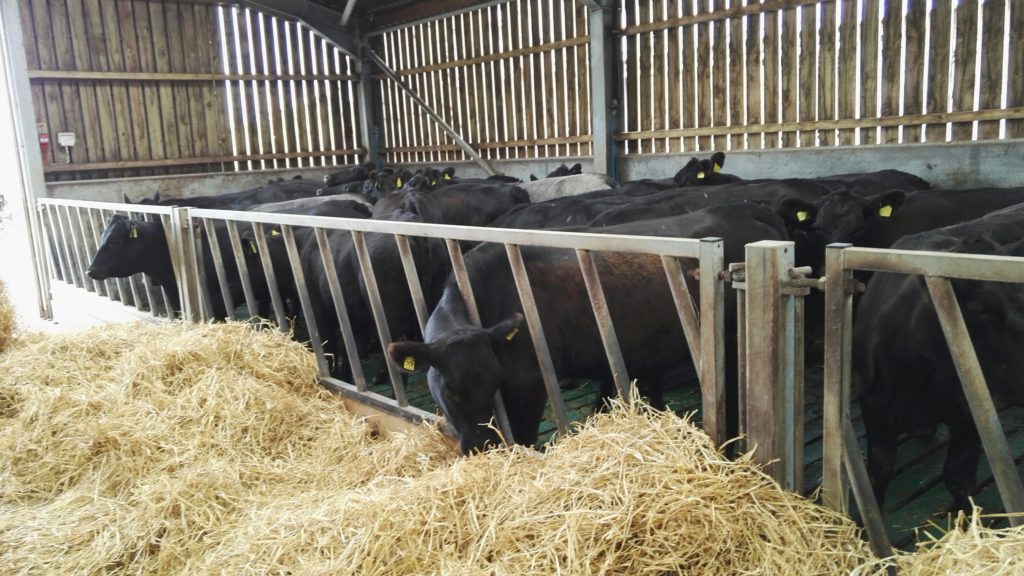Importance of Long Fibre in Intensive Rations
18 January 2021Cattle which are fed on an ad-libitum cereal-based finisher ration can have exceptional performance. In order to achieve this exceptional performance good management is vital. In any ruminant diet, fibre is necessary to maintain rumen function and an ad-lib cereal ration is no exception to this. Across the country straw supplies are looking relatively scarce with quality and availability likely to tighten during the spring. However, if your cattle are on a specialised high cereal ration reducing the amount of feed straw available is not an option.
On an intensive system cattle will eat around 12% of their dry matter intake as straw. This is the equivalent of around 1-1.5 kg/day for finishing cattle.
Fibre has a physical effect in the rumen and stimulates rumination and chewing. Forage based rations will generally have sufficient structural fibre to achieve this but on an intensive, cereal-based ration, stock will need a source of long fibre fed ad-lib. Clean straw is the best source of long fibre as it encourages rumination and chewing, therefore saliva production. Saliva contains bicarbonate which raises the pH which therefore helps to stabilise the rumen back to normal.
In the short term, animals without sufficient fibre may appear to perform well with high daily live weight gains but very quickly the performance will drop off, as the pH of the rumen quickly drops below what is optimal for the bugs. The result is poor performance, a drop in intake and if left unmanaged severe acidosis can cause shock and death.
Things To Check:
- Always offer a source of long fibre e.g. in a rack and do not rely on bedding. Typical intakes are around 1-1.5 kg per head/day.
- If the straw is to be mixed in the ration rather than offered in a ring feeder ensure that the straw is chopped to a suitable length (more than 2 cm but less than 10 cm).
- Look at the ration as a whole – it’s important to evaluate the whole ration if you suspect an acidosis issue.
- Specialised rations need to be carefully balanced, if you are unsure check it over with a trusted adviser/nutritionist.
Mary Young, mary.young@sac.co.uk
Sign up to the FAS newsletter
Receive updates on news, events and publications from Scotland’s Farm Advisory Service

